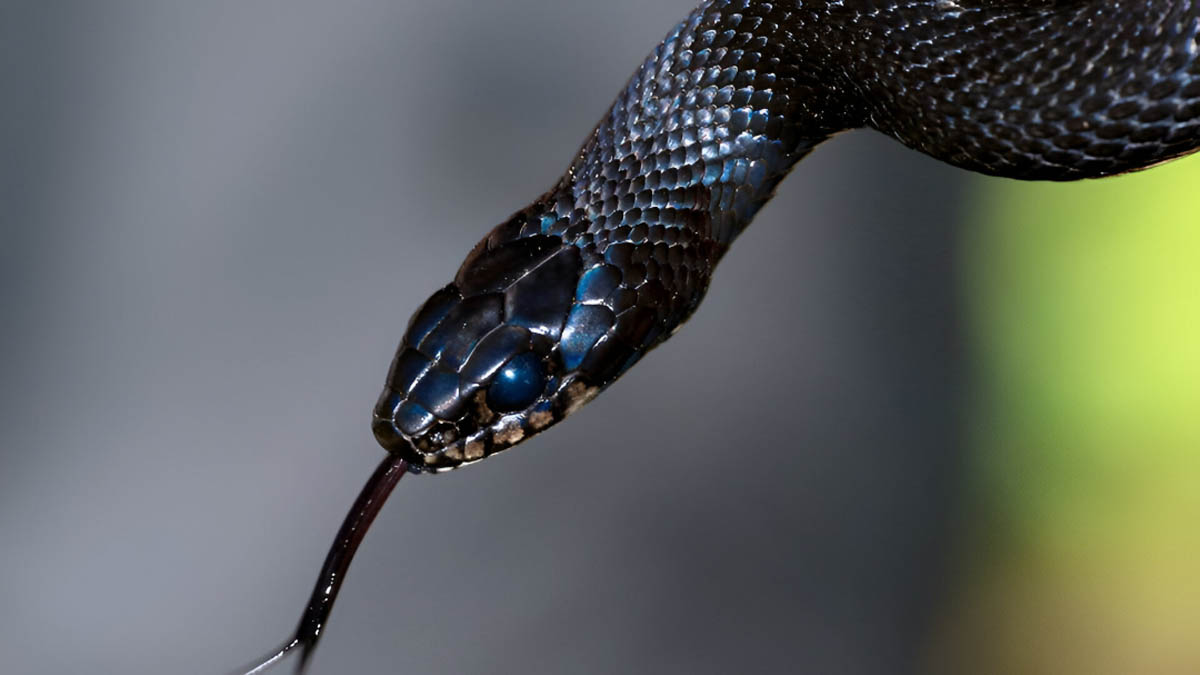Now Reading: A Venomous Obsession: Man’s 856 Self-Injections Lead to Breakthrough ‘Universal’ Snakebite Antidote
-
01
A Venomous Obsession: Man’s 856 Self-Injections Lead to Breakthrough ‘Universal’ Snakebite Antidote
A Venomous Obsession: Man’s 856 Self-Injections Lead to Breakthrough ‘Universal’ Snakebite Antidote

In an extraordinary and potentially life-saving turn of events, the relentless pursuit of one man to understand and conquer snake venom has culminated in a scientific breakthrough. Tim Friede, a self-taught herpetologist from the United States, willingly subjected himself to the potentially lethal bites and injections of venomous snakes a staggering 856 times over nearly two decades. This audacious and highly dangerous personal quest has now provided scientists with the key to developing what they are calling the “most broadly effective” antivenom to date.
For 18 years, Friede embarked on a perilous journey, injecting himself with increasing doses of venom from 16 of the world’s deadliest snake species. His motivation, initially born out of a desire for personal protection while handling his collection of venomous reptiles, evolved into a dedicated mission to find a universal solution to snakebites, which claim tens of thousands of lives globally each year.
“At first, it was very scary,” Friede admitted in a recent interview. “But the more you do it, the better you get at it, the more calm you become with it.” This unorthodox approach, which no medical professional would ever recommend, saw Friede build a remarkable tolerance to snake venom, his body producing unique antibodies capable of neutralizing the potent toxins.
While Friede’s self-experimentation was fraught with risk – including near-fatal encounters and the loss of a part of his finger – his unusual physiology caught the attention of immunologist Jacob Glanville, CEO of the biotech company Centivax. Intrigued by Friede’s “once-in-a-lifetime, unique immune history,” Glanville and his team, in collaboration with researchers at Columbia University, embarked on a mission to unlock the secrets held within Friede’s blood.
The groundbreaking results of their research have now been published in the journal Cell. By analyzing Friede’s blood, the scientists identified two potent antibodies that demonstrate an unprecedented ability to neutralize venom from a wide array of snake species. These antibodies, when combined with a known toxin inhibitor, provided complete protection in preclinical trials involving mice against lethal doses of venom from 13 of the 19 deadliest snake species, as categorized by the World Health Organization. Partial protection was observed against the remaining six species.
This “cocktail” of antibodies and a small molecule represents a significant leap forward in antivenom development. Traditional antivenoms are typically produced by injecting horses or other large mammals with venom, a process that is costly, complex, and often results in antivenoms that are only effective against specific snake species found in particular geographic regions. Furthermore, these animal-derived antivenoms can sometimes trigger adverse immune reactions in patients.
The antivenom derived from Friede’s human antibodies holds the promise of a more broadly applicable and potentially safer treatment. “Tim’s antibodies are really quite extraordinary – he taught his immune system to get this very, very broad recognition,” explained Professor Peter Kwong of Columbia University, a lead researcher on the project.
While the research is still in its early stages and human trials are years away, the implications are immense. A universal antivenom could revolutionize snakebite treatment, particularly in remote areas where access to species-specific antivenoms is limited.
Friede, who is now employed by Centivax as their Director of Herpetology, expressed his profound satisfaction with the outcome of his unconventional journey. “I’m really proud that I can do something in life for humanity, to make a difference for people that are 8,000 miles away, that I’m never going to meet, never going to talk to, never going to see, probably,” 1 he said.
Despite the success stemming from his self-experimentation, Friede strongly cautions against anyone attempting to replicate his actions. “Don’t do it,” he emphasized. “There’s no college in the world that can teach you how to do it safely.”
The scientific community is optimistic about this breakthrough, recognizing the potential to save countless lives. Researchers are now focused on refining the antivenom cocktail, expanding its effectiveness against all venomous snake families, including vipers, and moving towards human clinical trials. The dedication of one man, driven by a unique blend of curiosity and altruism, may ultimately lead to a world where snakebites are no longer a major global health threat.










